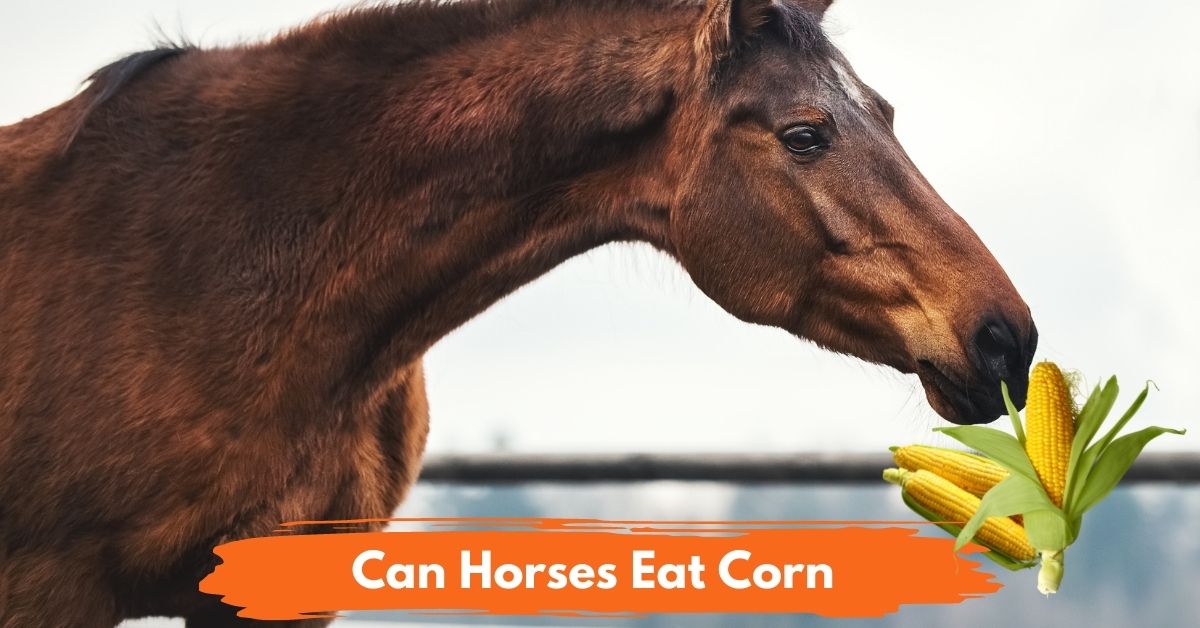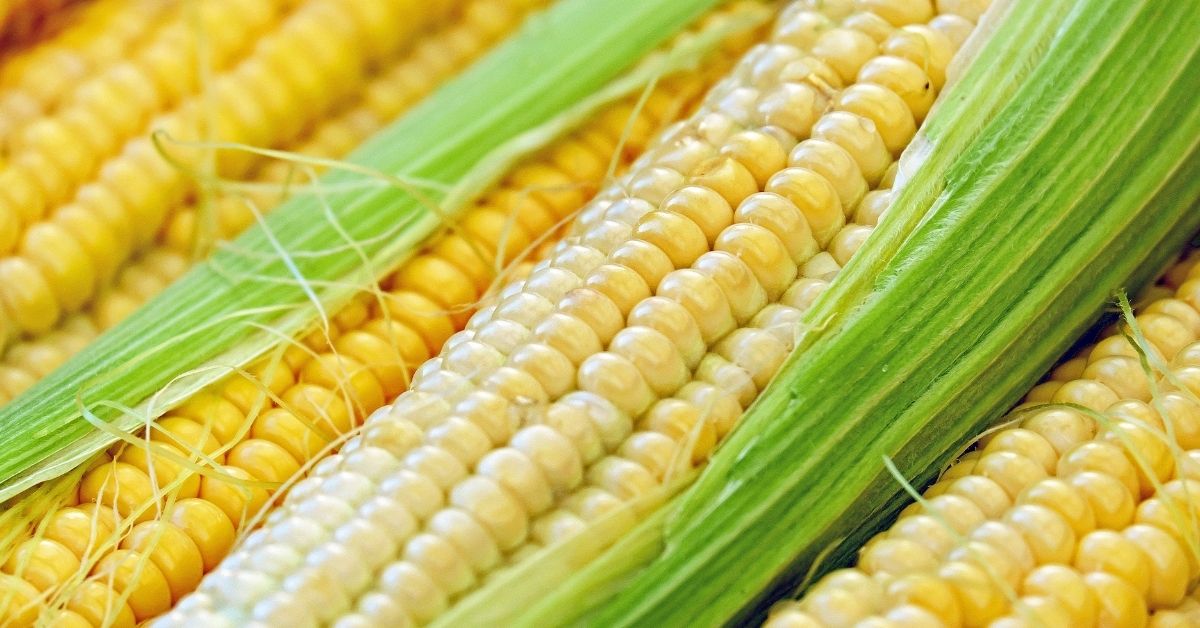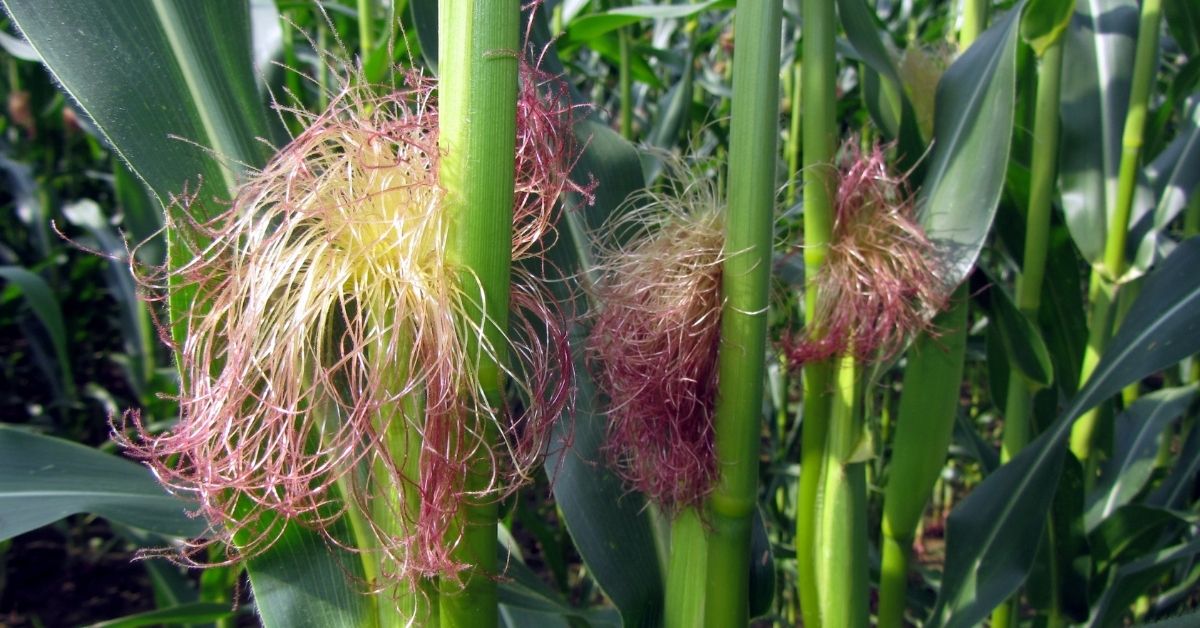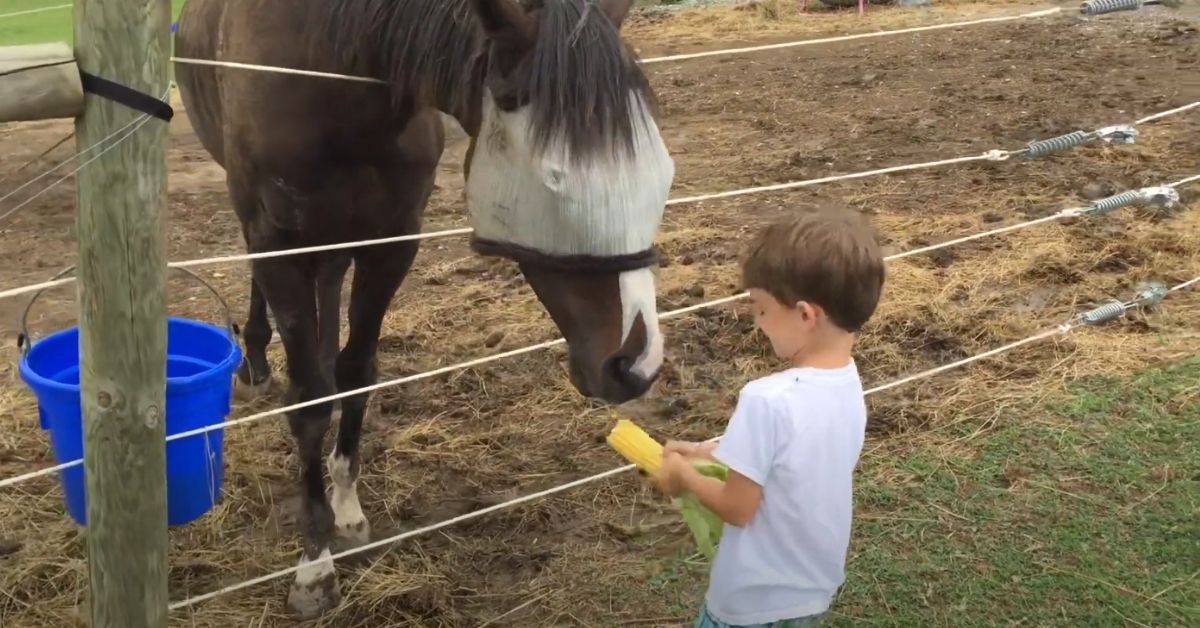
Horses can eat corn in certain conditions. It’s a good source of energy for equine but with exemptions because corn has high starch content. This part is not beneficial to overweight and insulin-resistant horses.
There’s no need to worry about confusion as I sorted out the purpose of corn to a horse. Different parts of corn are edible for your horses. But you have to pay attention that kernels, husks, and cobs vary in appearance and contents.
You’ll learn about each of them in this article. These pieces of information will guide you in managing the equine diet with corn.
Is Corn Good For Horses
Corn is good for horses, but not in all cases. You have to observe the proper procedure as it’s been in the horse’s diet for decades. It’s known to many that horses eat cracked or steamed flake corn. Moreover, crushed corn is also mixed with other ingredients to make feed pellets.
One of the positive effects of corn is its calorie content, which can help horses gain weight. It’s affordable, but it’s one of the energy-dense grains. So, you can’t go wrong in choosing this feed as an energy supplement.
Horses can get energy twice the amount that oats provide. But it has a lower fiber than oats. The ratio of energy to the fiber of corn is why you have to be careful with the amount you feed your horse.
Corn is unique among grains as it contains a decent amount of carotene. Horses can get Vitamin A for good eyesight and tissue building.
Some prepare horse feed with corn oil in winter. The goal is to increase the fat supply in the animal’s body. It’s also necessary when a horse goes through a lot of exercises.

Is Corn Bad For Horses
While corn is a good energy supplement for horses, it can sometimes be harmful. By knowing them, you can learn the proper way of feeding corn to your horses.
Hard to Digest
The importance of the amount of corn fed to your horse lies in this concern. Indigestion occurs if a horse has overeaten corn. It happens because of the complex chemical structure of corn.
Either whole kernels or crushed ones get digested in the small intestine by 30%. Ground corn has a higher percentage of digestion by 60% to 80%. But it’s still lower than the 97% to 99% oat’s digestibility.
The undigested corn left the small intestine to proceed to the hindgut, where it ferments. This occurrence can result in colic.
Not Good For Insulin-Resistant Horses
Corn contains a load of starch that heightens the blood glucose level. So, you should avoid giving it to insulin-resistant horses. It’s not suitable for those that are on a low-carbohydrate diet. A high-starch diet encourages the development of the insulin-resistant condition and metabolic syndrome.
This type of diet leads to undigested corn that impedes microbial fermentation. When it happens, a horse can get diseases like colic, laminitis, and acidosis. These concerns don’t only refer to corn but other sources of starch.
But corn has the highest amount of starch. It has 65%, while oats have 40% and wheat has 60%. DFA suggests mixing only 20% of corn into dry matter feed. This mixture is suitable for horses infected with mycotoxin fumonisin or leukoencephalomalacia (ELEM).

Can Horses Eat Corn on Cob
Horses can eat corn on a cob. You have to rely on the cob for the fiber needs of your horses. Kernels can only provide 2% fiber, but cob can pump it up. Not to mention that cob is high in fiber but low in starch.
My horses continued to munch on cobs after they ate the kernels. Some horse owners use the cob to slow down horses with quick eating habits. Still, you have to remember that corn cobs are not the main diet of equine.
Can Horses Eat Corn Husk
Corn husk doesn’t have many nutrients as it’s an agricultural residue. Manufacturers use it as a filler ingredient for pet foods. Yet, a study shows that enzymes and fermentation can make a difference. But, you must be careful with molds and fungus when feeding your horse corn husk. They’re toxic to your horses.
I can’t throw away corn husks, so I give 2 to 3 pieces to every horse. It’s occasional, and some horses like it, but others don’t.
Can Horses Eat Corn Stalk
Horses can eat corn stalks as an occasional treat besides its roles as bedding. But it would help if you kept an eye on molds and fungus. When a horse eats stalks with molds, it can get colic or laminitis. It’s a suggestion in a study conducted at Michigan State University Extension.

Can Horses Eat Corn Leaves
Horses eat corn leaves that are akin to the husk. You have to keep in mind the same concern which is the presence of molds. Again, give only a few pieces to the horses that like it since others don’t have an appetite for it.
Can Horses Digest Whole Corn?
A good set of teeth helps the digestion of the whole corn. Digestion starts in the mouth, so the horse should be able to break the tough outer layer of the kernels. Hence, you must avoid giving it to your horses with dental issues.
But, some kernels can slip the process of digestion. That’s why flaked, or cracked corn is in textured feed. There’s no issue with digesting the cob as it’s filled with fiber.
Another thing that affects digestion is the right amount of corn. A horse needs 3.5 to 4 grams of starch for every kilo of its body weight. Thus, a 500-kg horse needs 1,750 to 2,000 grams of starch. Don’t forget that corn is not the only starchy food a horse eats.
Giving the whole corn to horses that engage in strenuous activities is favorable. It would be best if you don’t give it to obese and insulin-resistant horses.
Can Horses Eat Sweet Corn
Horses can eat sweet corn, although it’s different from field corn. The latter is usually used for livestock feed. You should know that sweet corn has more sugar than field corn. You won’t question this information when you cook and eat sweet corn after picking.
Sweet corn has lower starch than field corn. But it doesn’t mean it’s safer for all horses. Due to its sugar content, you must cut the amount and frequency when giving it to your horses.

Can Horses Eat Candy Corn
Horses can eat candy corn in a minimal amount, as non-chocolate candies are safe for horses. Candy corn has a kernel-like shape, and it’s made from sugar, honey, vanilla, and butter.
Can Horses Eat Corn Silage
Horses can eat corn silage, which is a product of proper preservation. You’ll know that it’s safe for your horses when it’s green or greenish brown. The other signs of good corn silage are moisture, pleasant smell, and even texture.
When the fermentation of silage is not ideal, the growth of molds and bacterial toxins will arise. These are undesirable things as they can cause colic and botulism in horses.
Is Corn Oil Good For Horses With Ulcers
Corn oil is good for horses with ulcers, as confirmed by the study. The finding shows the positive effect of corn oil supplementation. It enhances the protective properties of the glandular gastric mucosa of a horse. This effect can soothe ulcers and even lower their chances of forming.
Is Corn or Oat Better For Horses
The answer to this question depends on the demands and conditions of your horses. Corn and oat are the common grains given to horses. I must say that you have to give corn to your horses to fulfill their energy needs in activities. It has a high carbohydrate, so it’s the most energy-dense grain.
Horses can eat corn on the cob, cracked corn, ground corn, steamed roll corn and shelled whole corn. Ground corn has the highest digestibility rate among the other forms of corn. But, some tiny pieces escape digestion in the small intestine. They will end up fermenting in the hindgut, and it causes colic.
So, avoid giving corn to horses with digestive issues. The corn cob can be good as it’s filled with fiber. But due to oats’ 13% fiber content, it’s the safest grain to feed your horses. Because of this, oats have a higher quantity of every nutrient in these grains.
Horses can eat more oats without being at risk of colic and overeating. It’s safe to conclude that you better feed your horse oats when the animal has digestive problems. The same rule applies to both grains. They must not contain any mold damage.
How Much Corn Can You Feed a Horse?
When adding cracked or crushed corn to the mix of feed, it should not exceed 50%. It shows that corn is suitable for horses if served with other feed pellets, hay, or roughage. To be exact, an average horse can have 1.6 kg of corn per meal.
Conclusion
Horses can eat corn to meet the need of energy supply in conquering strenuous activities. But you must ensure that your horse eats the right corn. Undigested corn can cause colic and other digestive problems.
You can feed your horse 1.6 kg of corn in a meal. The cobs, leaves, husks, and stalks are also edible for horses. These parts should be an occasional treat to horses. Before feeding your horse corn, you must check for molds that can harm your horse’s gut.
